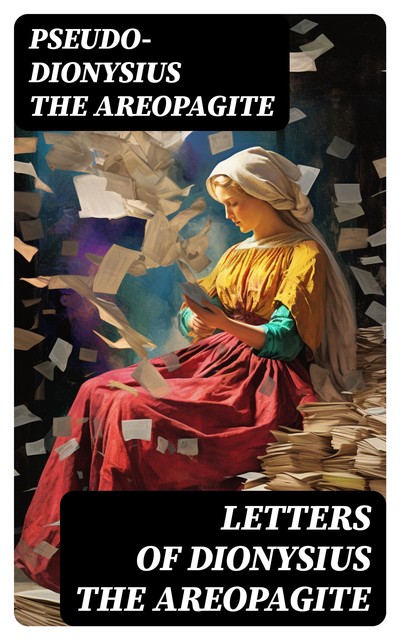Мы используем файлы куки, чтобы Bookmate и наши рекомендации работали лучше.
Подробнее на странице Политика Cookies
Подробнее на странице Политика Cookies
Принять все Cookies
Выбрать cookies

en
Удобнее в приложении:
iOS
·Android
Pseudo-Dionysius the Areopagite
Letters of Dionysius the Areopagite
Сообщить о появлении
Впечатление
На полку
Уже прочитано
Сообщить об ошибке
Поделиться
Facebook
Twitter
Скопировать ссылку
Загрузите файл EPUB или FB2 на Букмейт — и начинайте читать книгу бесплатно. Как загрузить книгу?
In 'Letters of Dionysius the Areopagite,' readers delve into a compendium of epistolary literature that is as enigmatic as it is spiritually profound. The collection, eloquently translated from the original Greek by John Parker, offers a fusion of Neoplatonic philosophy intertwined with early Christian theological inquiries. The letters are carefully crafted, brimming with allegorical finesse and doctrinal precision, providing insight into the synthesis of Hellenistic thought and nascent Christianity in the context of the declining Roman Empire. These texts contribute significantly to the corpus of patristic literature, marking a pivotal moment in the development of Christian mysticism and shaping the medieval scholastic tradition that would follow. Pseudo-Dionysius the Areopagite, rather than the first-century figure Dionysius who was converted by St. Paul, is revealed as the true author. This fifth-century writer and philosopher's identity remains shrouded in mystery, but their work reflects a profound intellectual engagement with the spiritual and theological issues of their time. The adoption of an ancient figure's name likely served to grant historical authority to these theological contemplations, embedding them into the foundational narrative of Christian theology. As an influential antecedent of later Christian thought, from the scholastics to modern mystics, the author's motivations appear rooted in a desire to harmonize Platonic philosophy with Christian doctrine, to articulate a transcendent hierarchy of being, and to guide the faithful towards mystical union with the divine. Recommended for those with an interest in the early Christian mysticism or the intellectual tradition of late antiquity, 'Letters of Dionysius the Areopagite' is a seminal work for understanding the evolution of religious thought in the Western world. The text not only offers valuable insights into the theological underpinnings of Christianity but also serves as a testament to the enduring quest for spiritual knowledge and truth. For scholars, theologians, and seekers alike, this book stands as a monumental achievement in the chronicles of religious literature.
больше
Эта книга сейчас недоступна
43 бумажные страницы
- Правообладатель
- Bookwire
- Дата публикации оригинала
- 2023
- Год выхода издания
- 2023
- Переводчик
- John Parker
Другие версии книги
Уже прочитали? Что скажете?
👍👎
fb2epub
Перетащите файлы сюда,
не более 5 за один раз

